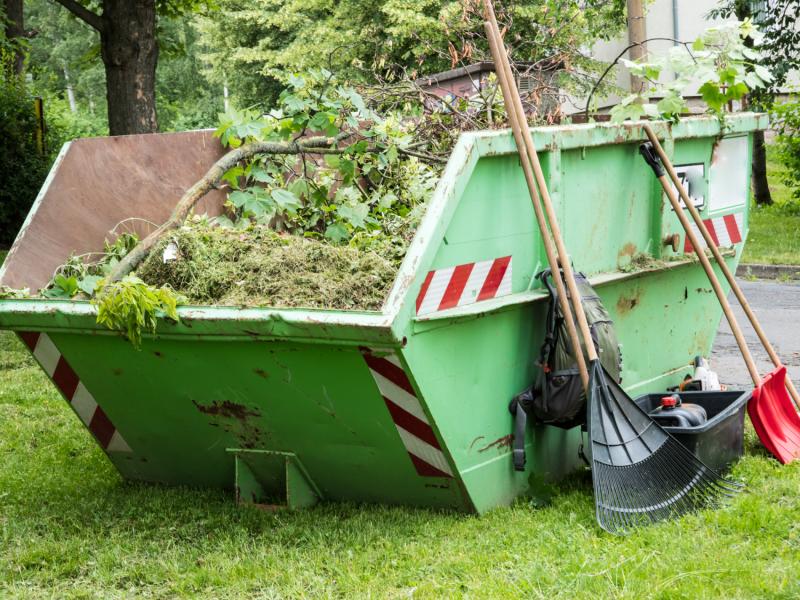Maintaining a clean and organized garden is essential for both aesthetic appeal and overall property health. Over time, gardens accumulate a range of waste materials, including fallen leaves, branches, weeds, soil debris, and old garden furniture. Efficient garden rubbish removal ensures that your outdoor space remains tidy, safe, and ready for use while preventing potential hazards like pests or blocked drainage.
Professional services like garden rubbish removal provide an effective solution for homeowners looking to clear large volumes of garden waste quickly. These services offer the expertise, equipment, and manpower to handle garden cleanup efficiently, ensuring that all waste is collected, sorted, and disposed of responsibly. Using professionals saves time, reduces physical strain, and ensures compliance with local waste management regulations.
Assess the Garden
The first step in effective garden rubbish removal is assessing the extent and type of waste present. Walk through your garden and identify items that need removal, including dead plants, overgrown shrubs, fallen branches, and broken garden equipment. Determining the volume and type of waste helps you plan the removal process, decide on the tools needed, and allocate appropriate resources.
Sort and Categorize Waste
Sorting garden waste makes disposal more efficient and environmentally responsible. Waste can typically be divided into the following categories:
- Green Waste: Leaves, grass clippings, and small branches suitable for composting or recycling.
- Bulk Waste: Large branches, logs, or garden furniture that may require special handling.
- Hazardous Waste: Chemicals, fertilizers, or pesticides that need careful disposal.
- General Waste: Non-organic items like broken pots or plastic garden materials.
Proper categorization ensures that recyclable materials are processed correctly and hazardous items are disposed of safely, minimizing environmental impact.
Prepare Tools and Equipment
Having the right tools and equipment is key to quick and efficient garden rubbish removal. Basic equipment may include gloves, pruning shears, rakes, wheelbarrows, and garbage bags. For larger projects, professional services often use trucks, shredders, and specialized machinery to remove heavy branches and bulk waste efficiently. Preparing tools beforehand reduces interruptions and speeds up the process.
Schedule Regular Maintenance
Regular garden maintenance helps prevent the accumulation of waste and simplifies future removal efforts. Schedule routine trimming, leaf clearing, and debris collection to keep the garden in top condition. Consistent upkeep reduces the workload during major cleanups and maintains a visually appealing outdoor space throughout the year.
Prioritize Safety
Garden rubbish removal can involve heavy lifting, sharp tools, and potentially hazardous materials. Always wear protective gear, including gloves, sturdy shoes, and long sleeves. Handle tools safely and avoid lifting items that are too heavy alone. Professional services are trained to manage these risks, ensuring a safe cleanup process for your property.
Engage Professional Garden Rubbish Removal Services
For large gardens or extensive cleanups, engaging professional garden rubbish removal services is highly recommended. Experts provide efficient collection, sorting, and disposal of all garden waste. They also ensure compliance with local regulations, particularly for green and hazardous waste, while reducing the physical burden on homeowners.
Consider Composting and Recycling
Sustainable practices can be incorporated into garden waste management. Composting green waste like leaves, grass, and small branches enriches soil naturally and reduces landfill contributions. Materials such as wood or metals can be recycled, and some items may even be repurposed for garden projects. Professionals often coordinate recycling efforts to maximize environmental benefits.
Maintain Organization During Cleanup
Organizing waste during the removal process streamlines cleanup and disposal. Designate areas for sorted waste, keep pathways clear, and remove debris in stages. This structured approach reduces time spent on cleanup, minimizes hazards, and ensures efficient removal of all items.
Conclusion
Quick and efficient garden rubbish removal is essential for maintaining a safe, tidy, and beautiful outdoor space. By assessing the garden, sorting waste, preparing the right tools, scheduling regular maintenance, prioritizing safety, engaging professional services like garden rubbish removal, and promoting recycling and composting, homeowners can simplify the cleanup process and ensure sustainable disposal practices. A well-maintained garden enhances property aesthetics, usability, and overall environmental responsibility.

